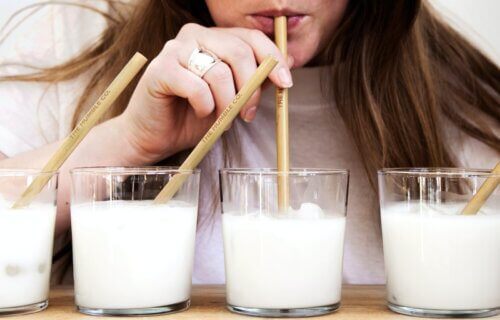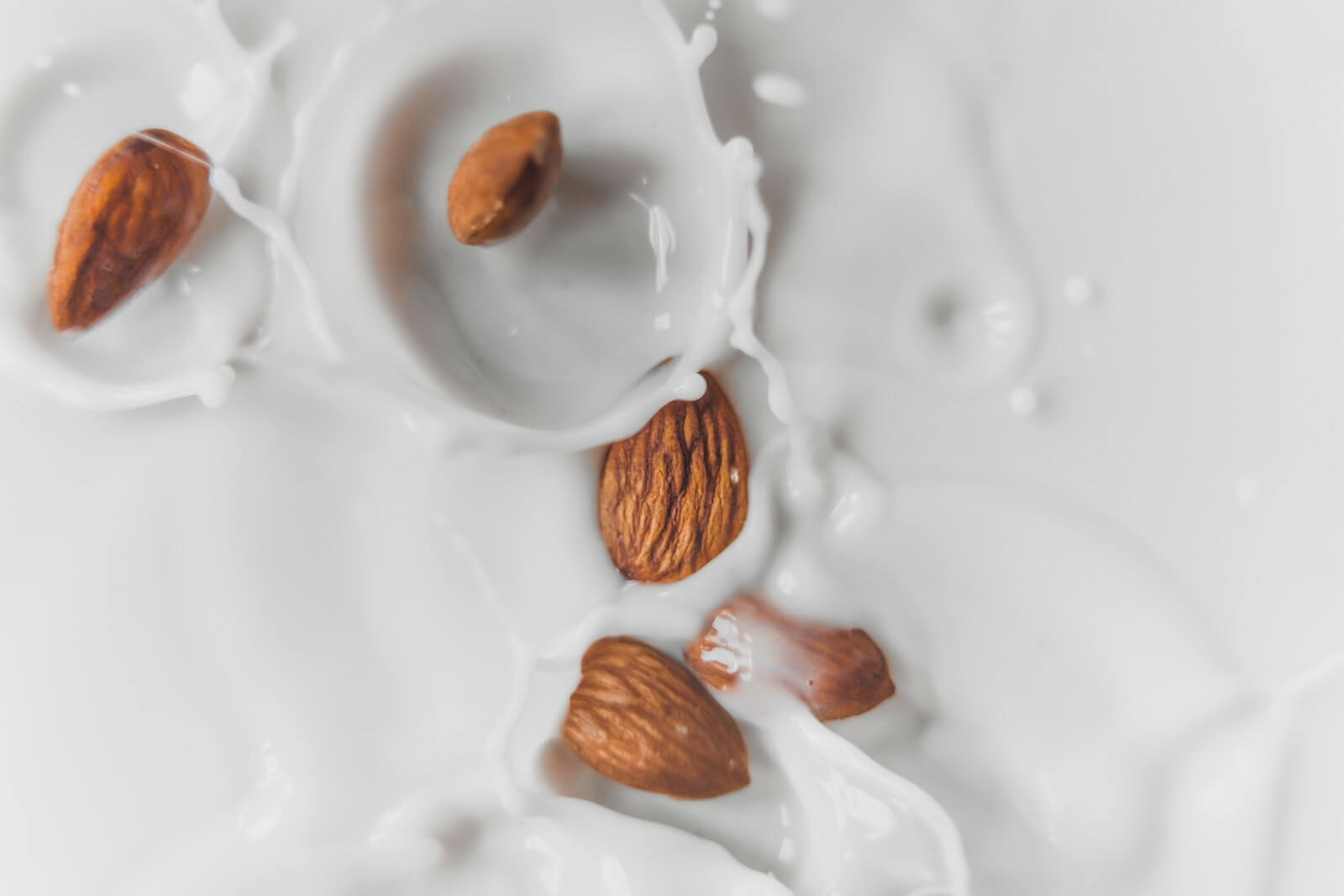The List: Best Non-Dairy Milks, According to Experts
1. Soy Milk
If you’re looking for a great one-to-one substitute for dairy milk, soy milk may be your best bet. It easily mimics the creaminess of dairy without any distracting flavors, unlike many of the most common alternatives. As Live Science puts it, “soy milk is a great all-rounder: it’s nutritious, widely available and thanks to its mild and creamy flavor, it pairs well with many different ingredients. You can easily find cartons of soy milk in most grocery shops and supermarkets, and they’re usually relatively cheap.”
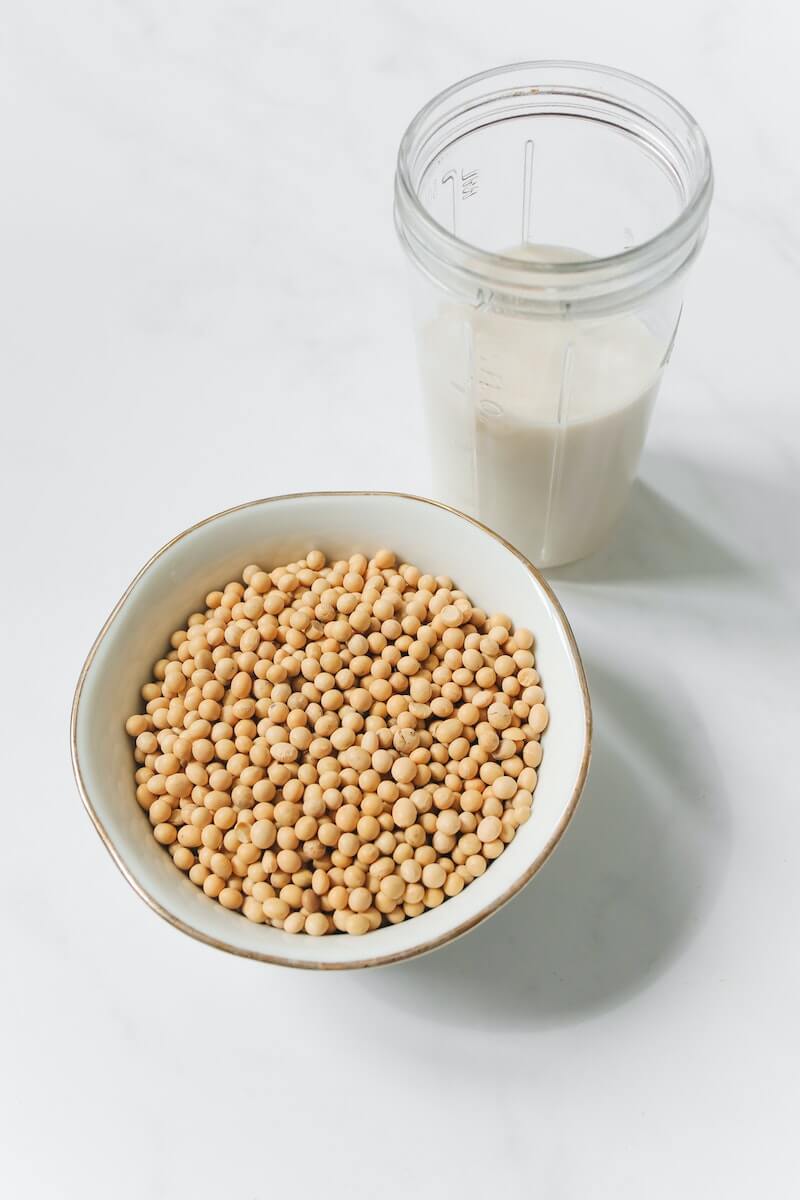
“Soy milk is made with either soybeans or soy protein isolate, and often contains thickeners and vegetable oils to improve taste and consistency. It typically has a mild and creamy flavor. It works best as a substitute for cow’s milk in savory dishes, with coffee or on top of cereal,” explains Healthline. “In terms of nutrition, soy milk is a close nondairy substitute for cow’s milk. It contains a similar amount of protein, but around half the number of calories, fats and carbohydrates. It is also one of the few plant-based sources of high-quality ‘complete’ protein, which provides all the essential amino acids. These are the amino acids that cannot be produced by the body and must be obtained from the diet.”
When it comes to cooking and baking, not all non-dairy milks are created equal. But soy milk shines when it comes to getting creative in the kitchen. As Better Homes & Gardens says, “it’s also a good choice for a milk substitute in many baking recipes because it’s similar in protein count to real dairy milk. It’s stable when heated to high temperatures [so it] works in many creamy sauces, too.”
2. Almond Milk
Light in calories and delicious in flavor, it’s hard to go wrong with almond milk. It’s a highly versatile substitute for dairy milk, with experts suggesting its use in everything from sipping to cooking. As Healthline explains, “almond milk is made with either whole almonds or almond butter and water. It has a light texture and a slightly sweet and nutty flavor. It can be added to coffee and tea, mixed in smoothies and used as a substitute for cow’s milk in desserts and baked goods.”
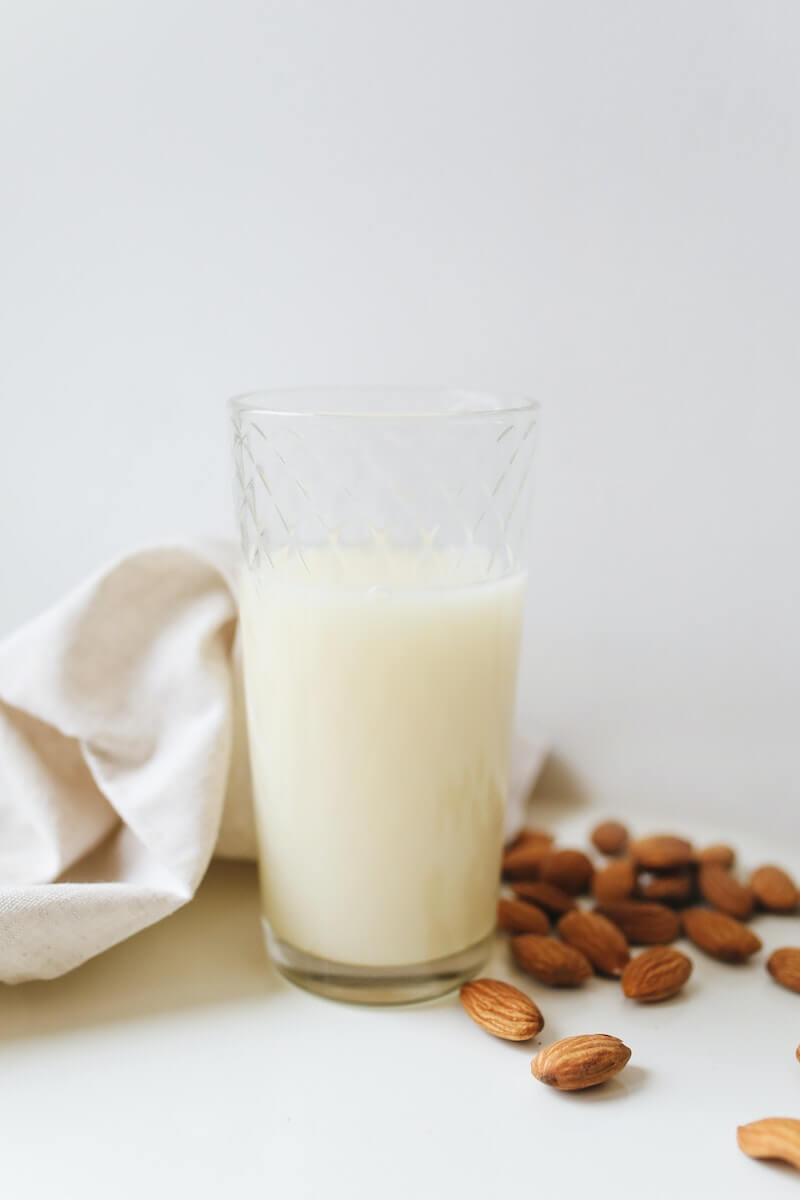
“If you have a plant-based milk in your fridge, it’s most likely to be this one. In 2020, almond milk was the market leader in plant-based milks, with two-thirds of overall sales,” notes Parade. “A naturally lactose-free milk, almond milk has a creamy texture and slightly nutty flavor. While almond milk has less protein than other plant-based milks, it also tends to be one of the lowest in calories. Almond milk is high in vitamin E, which helps keep skin and eyes healthy.”
One of the greatest benefits to almond milk is its near universal availability. No matter where you buy your groceries or pick up your daily latte, almond milk is almost guaranteed to be readily available to you. It’s also a great swap in essentially any place you’d typically use dairy milk, meaning you only need to grab one carton to fill all your milk needs. As BBC Good Food puts it, “almond milk is widely available these days, from supermarkets to coffee shops. It’s low in calories, versatile for drinking and cooking and is a good vegan alternative.”
3. Oat Milk
Over the last few years, oat milk has exploded in popularity. With everything from coffee creamers to ice creams popping up in grocery stores around the world, oat milk has quickly risen through the ranks to become one of the best non-dairy milk alternatives. “Oat milk became the second most popular selling plant-based milk, ahead of soy milk, in 2020,” notes Parade. “It has a mild flavor and has twice the fiber of dairy milk; it also contains potassium, magnesium and zinc.”
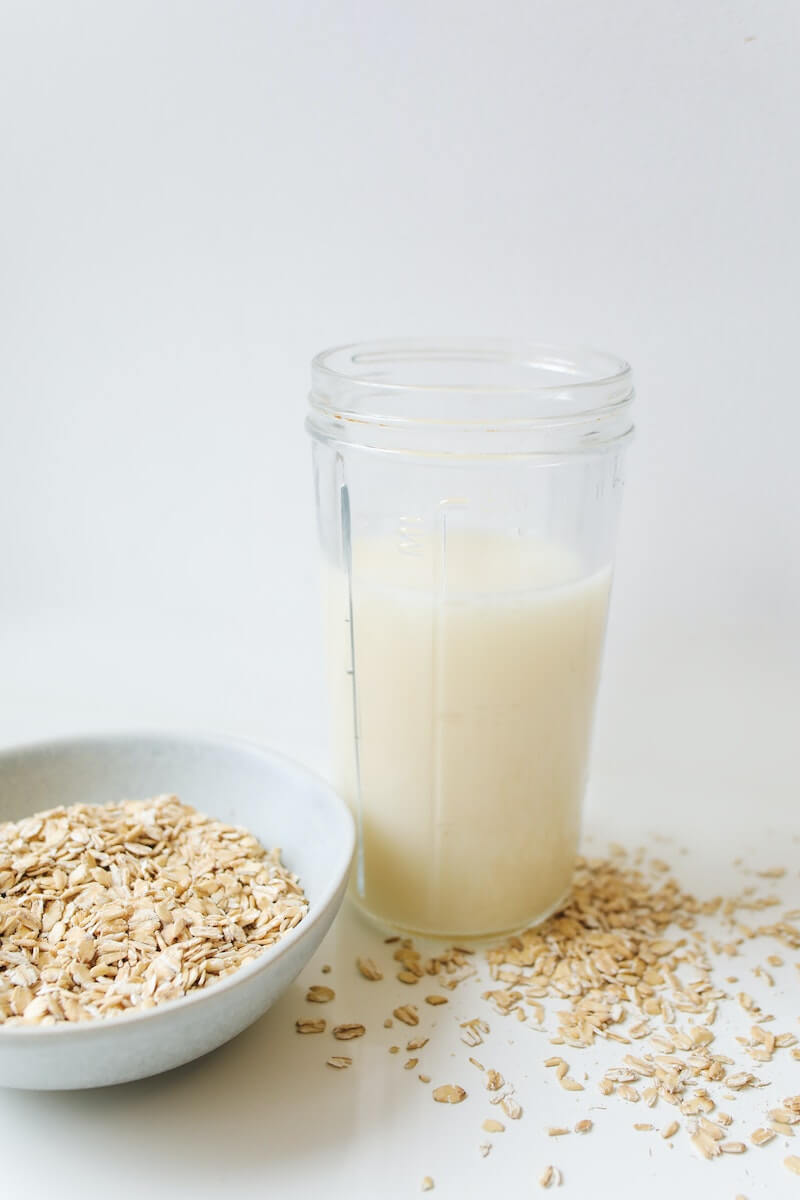
“If you’re looking for a plant-based alternative that has a similar taste and consistency to full-fat dairy milk, look no further than oat milk. Sweet and creamy, it works well with coffees, teas and breakfast cereals,” notes Live Science. “It’s also a rich source of calcium, iron, phosphorus, B vitamins and vitamin D. One cup of this milk alternative provides a whooping 130 calories and 16g of carbohydrates, making it a great source of energy for active individuals. Thanks to such a high carbohydrate content, as well as a good texture, oat milk is potentially the best milk alternative for baking goods.”
One of the best things about oat milk is how simple it is to make. If you open your fridge and find the carton empty, you can easily make more with the oats you have in your pantry. As Better Homes & Gardens says, “like other nondairy milks, if you choose to make your own oat milk, you can make it even smoother and silkier by straining it through cheesecloth.”
4. Coconut Milk
For a subtle taste of the tropics in your coffee, cereal, and smoothies, try swapping cow’s milk for coconut milk. This healthy alternative is low in calories and in carbohydrates, making it a good option for those looking for lighter options. “Coconut milk is made from water and the white flesh of brown coconuts. It is sold in cartons alongside milk and is a more diluted version of the type of coconut milk commonly used in Southeast Asian and Indian cuisines, which is usually sold in cans,” explains Healthline. “Coconut milk contains one-third the calories of cow’s milk, half the fat and significantly less protein and carbohydrates. In fact, coconut milk has the lowest protein and carbohydrate content of the nondairy milks.”
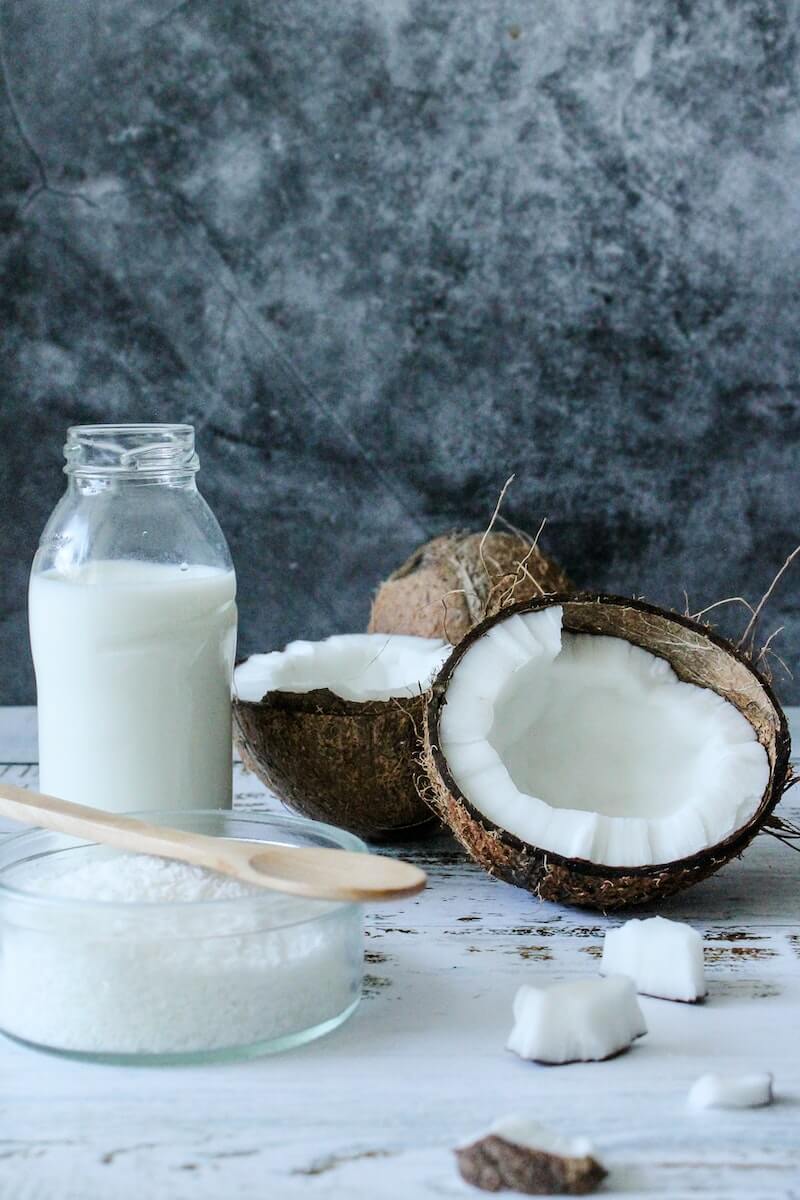
“Coconut milk may not be as popular or widely available as soy or almond milk, but it does have a place as one of the best milk alternatives. What’s more, evidence suggests that dietary fats found in coconut milk may be highly beneficial to our health,” adds Live Science. “According to a review published in the Journal of the Science of Food and Agriculture, coconuts are a rich source of medium-chain fatty acids, compounds that closely resemble the ones found in human breast milk. These nutrients have been shown to regulate blood lipids, improve cognitive function, reduce systemic inflammation and decrease the risk of developing metabolic conditions and certain types of cancer.”
Coconut milk is also a great choice for environmentally conscious shoppers. Unlike many milk alternatives that require a great deal of water and other resources, coconut milk has a fairly low impact. As BBC Good Food says, “coconut milk is quite low in terms of its environmental impact as it has low water requirements and you don’t have to deforest the trees in order to harvest the coconuts.”
5. Pea Milk
This may be your first time hearing about pea milk, and even if you’ve heard of it, you may have passed it up strictly because it seems strange. But believe it or not, pea milk is both delicious and nutritious with one of the highest protein contents of non-dairy milk alternatives. “Yes, you can get milk made from peas (not the green peas in your freezer, but yellow split peas) – though it’s not green and doesn’t taste of peas,” says BBC Good Food. “In fact, it’s quite creamy and more milk-like than other plant-based alternatives. It’s made by first grinding the yellow split peas into a flour; the protein is then extracted and combined with water to make the milk.”
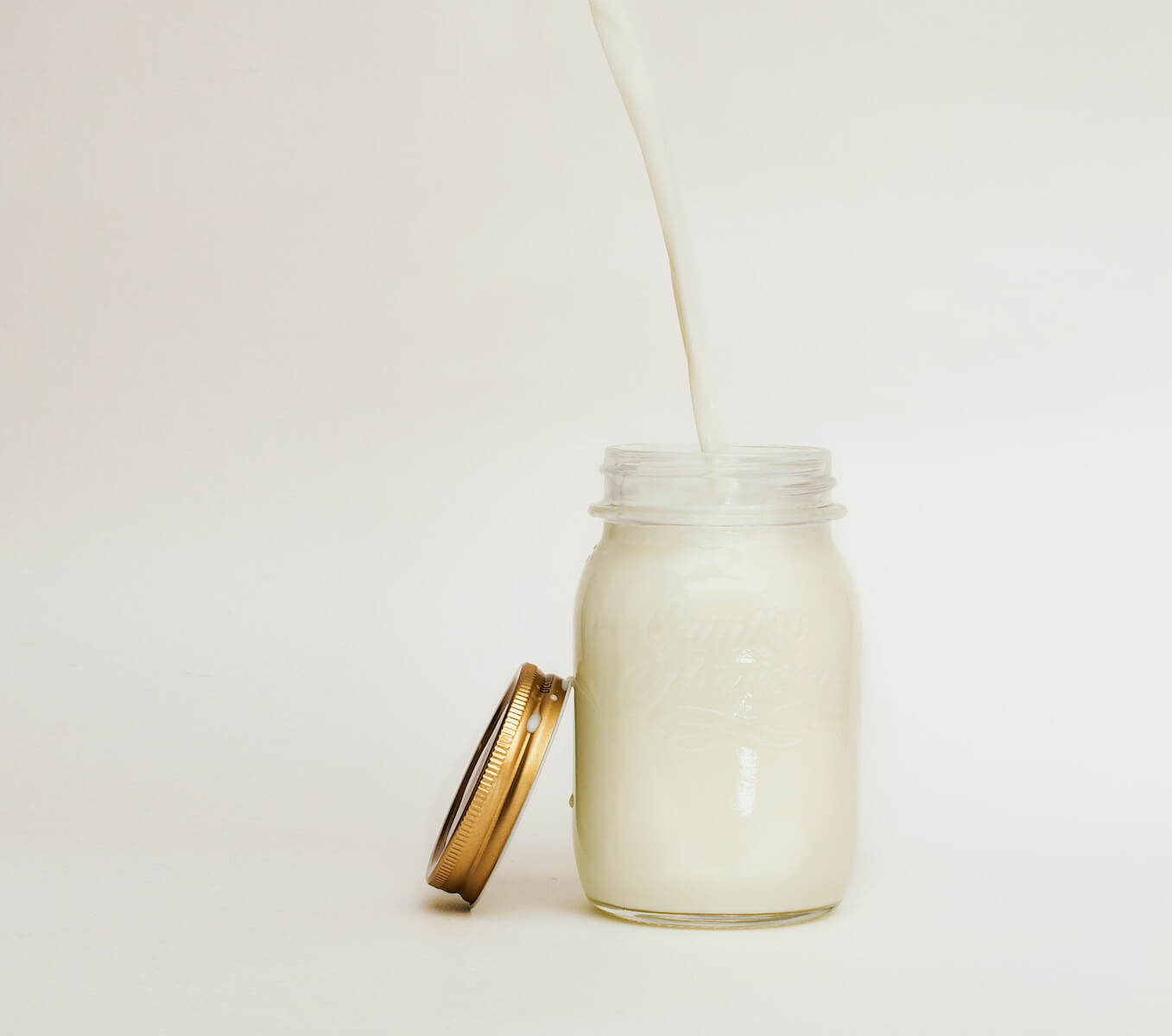
“If you’re concerned about the beverage tasting like those little green veggies, think again. Depending on the flavor you’re buying, you’ll get a slightly sweet and thick drink similar to dairy milk. There are vanilla and chocolate flavors that have been compared to milkshake flavors,” raves Better Homes & Gardens. “The fact that it’s 100% vegan and free of dairy, nut, lactose, and gluten makes this a worthy consideration for anyone with food allergies. An 8-ounce serving of [pea milk] contains 8 grams of protein (the same as dairy milk) and 50% more calcium than a glass of 2% cow’s milk. It’s also fortified with healthy oils and vitamins, making it rich and creamy like real dairy.”
Of course, the best milk alternatives are those that can easily take the place of dairy in your day-to-day life. Pea milk is up to the challenge, easily blending in with coffee, smoothies, baked goods, and more. As Food & Wine puts it, “in coffee, the pea milk’s neutral taste isn’t too strong and doesn’t imbue as much flavor as most nut milk. But if you want a healthy shake-like element with eight grams of protein per 8 ounces, plus vitamins and minerals, this could be a good upgrade.”
You might also be interested in:
Sources:
- Healthline
- Parade
- The Spruce Eats
- BBC Good Food
- Food & Wine
- Live Science
- Men’s Health
- Food Matters Live
- Better Homes & Gardens
- Women’s Health
Note: This article was not paid for nor sponsored. StudyFinds is not connected to nor partnered with any of the brands mentioned and receives no compensation for its recommendations. This article may contain affiliate links.
